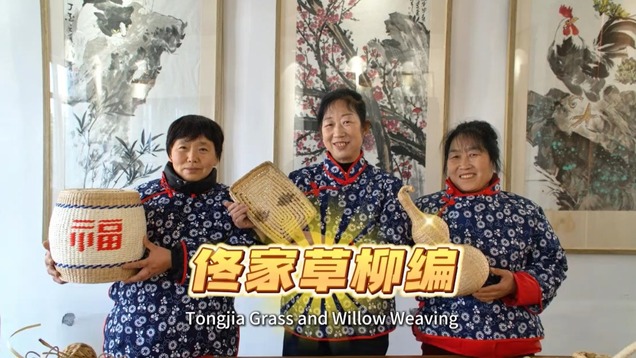Vibrant Spring: Busy Spring Tea Harvest in Hunan Leiyang Tea Garden
On March 19, the tea garden of the collective economic cooperative in Jiangtou Village, Longtang Town, Leiyang, Hunan Province, was alive with rows of lush tea plants adorned with tender, golden buds, filling the air with their fragrance. Tea farmers shuttled between the rows, their baskets secured at their waists, collecting this year's first harvest of spring tea.

Tea farmers busy picking spring tea
Photo by Liu Cheng
This early yield, known as Tou Chun tea, is picked before the Qingming Festival (a traditional Chinese festival, also known as Tomb-Sweeping Day) and is celebrated for its freshness, nutrition, and rich flavor, a reward after the winter's ice and snow. With temperatures gradually rising in recent days, new leaves have sprouted from the tea trees, marking the arrival of the golden season for spring tea harvesting in Leiyang. Tea farmers, seizing favorable weather, gather fresh new leaves and make the best use of their time for tea processing. "Our tea garden covers an area of over 3,000 mu (200 hectares). This year's mild conditions have produced high-quality spring tea. We strictly follow the principle of picking early, choosing tender leaves, and harvesting in batches, prioritizing bigger leaves over smaller ones. Additionally, we only pick newly sprouted buds," said Liu Haiqiang, head of the collective economic cooperative in Jiangtou Village.
Alongside the bustling tea-picking activities in the tea garden, the tea-processing workshops hum with activity filled with the rich aroma of tea. Promptly after being picked, the tea is sent to the workshops, where it undergoes a process of withering, fixation, rolling, drying, and preservation before being transformed into processed tea with a strong aroma.
In recent years, Leiyang has firmly established and embraced the philosophy that "lucid waters and lush mountains are invaluable assets". The city has actively promoted high-quality tea varieties, developed ecological tea gardens, and integrated the tea industry with tourism. As a result, the local tea industry has become a pillar for increasing farmers' incomes, enhancing quality of life, and promoting sustainable ecological agriculture. Currently, the tea planting area in Leiyang has exceeded 13,000 mu (866.67 hectares). Additionally, the city is home to 15 large-scale tea enterprises, providing over 3,000 job opportunities.






